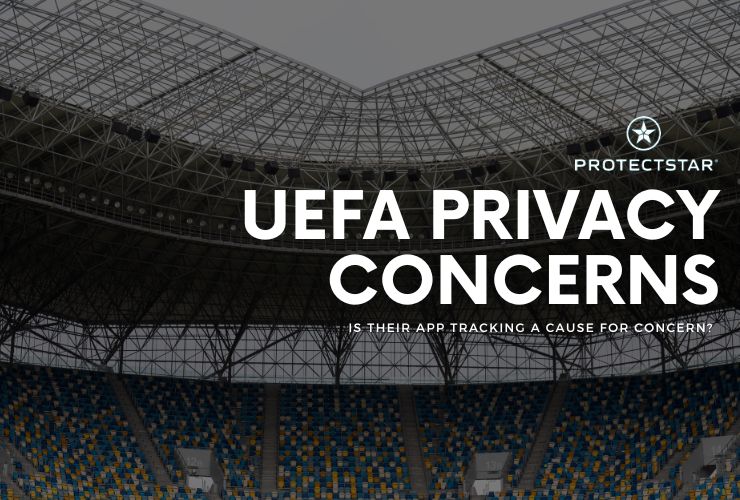The UEFA App And Privacy

The UEFA European Championship ticketing app has become a hotbed of controversy due to its collection and sharing of anonymized location data with law enforcement authorities. While UEFA maintains that the app enhances crowd control and security, the lack of transparency surrounding data usage has left fans feeling uneasy.
How does it track?
The UEFA ticketing app employs a two-pronged approach to location tracking, depending on whether users grant location permissions.
- With Location Permissions Granted: When users grant location permissions, the app sheds its anonymity cloak and transforms into a real-time location tracker. It leverages the device's GPS chip to pinpoint a user's exact location with great accuracy. This allows authorities to monitor the movement of individuals within the stadium and its surrounding areas in real-time. Imagine attending a match and the authorities having a virtual map with your location constantly updating – a privacy concern for many.
- Location Permissions Denied: A Less Precise, But Still Present, Tracking Method Even with location permissions disabled, the app doesn't become completely blind. It can still gather anonymized location data using cell tower IDs or Wi-Fi network details. Cell tower triangulation, a technique that exploits signals from multiple cell towers, can estimate a user's location within a specific radius, typically ranging from a few hundred meters to a a couple of kilometers. While this method isn't as precise as real-time GPS tracking, it still paints a picture of a user's general whereabouts. Additionally, Wi-Fi networks often have unique identifiers that, when combined with other data points, could potentially be used for more granular tracking.
The Tracking: Security or Surveillance?
The reasons behind UEFA's implementation of location tracking are multifaceted. By monitoring crowd movement patterns in real-time, authorities can anticipate potential bottlenecks or areas where large groups might congregate. This allows for a more proactive approach to crowd control, potentially preventing stampedes or other crowd-related incidents.
Law enforcement might use location data to track known hooligans or individuals flagged as potential security risks. This could involve monitoring their movements within the stadium or surrounding areas to prevent any disruptive behavior.
In case of an emergency situation within the stadium, real-time location data could be crucial for coordinating evacuation efforts and directing first responders to those in need of assistance.
Data Collection
While the data is anonymized, privacy advocates raise concerns about the potential for re-identification. Anonymization techniques are not foolproof, and with enough data points, it could be possible to de-anonymize individuals, especially when combined with other information such as ticketing details or purchase history. This raises the specter of targeted surveillance by authorities or even misuse of the data for commercial purposes.
Beyond Location Tracking
The app's access to sensitive data and device permissions opens a Pandora's box of security risks. Here's how it could play out:
- Data Breaches and Leaks: In the event of a data breach, hackers could gain access to a treasure trove of personal information and location data, putting users at risk of identity theft, targeted scams, or even physical harm.
- Malware and Spyware Infiltration: The app's permissions could be exploited by malicious actors to install malware or spyware on a user's device. This could allow them to steal sensitive data, track a user's activity beyond the app, or even hijack the device's functionality.
UEFA must prioritize transparency and user trust. Here's what they can do:
- Clear and Accessible Data Policy: The data collection and sharing practices should be clearly outlined in a user-friendly and accessible format, not buried deep within UEFA's website.
- Granular Privacy Controls: Users should have the option to choose the extent of location tracking they are comfortable with. This could include an opt-out option for location tracking altogether.
- Independent Audits and Security Measures: Regular independent audits of the app's security protocols and data storage practices are essential to ensure user data remains protected.
What do you think about this situation? Tell us in our social media channels!